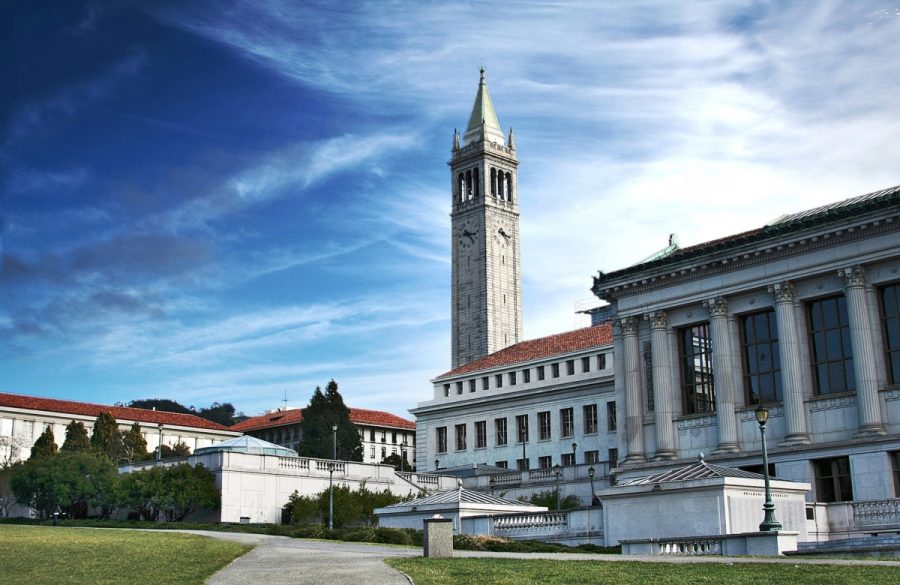The University of California hosted a webinar with the three 2020 Nobel Prize recipients within the UC community to celebrate their revolutionary scientific discoveries in the field of chemistry, physics and physiology or medicine.
The webinar included three 2020 Nobel Prize winners: UC Berkeley biochemistry and molecular biology professor Jennifer Doundna, UCLA physics and astronomy professor Andrea Ghez, and UC Davis alumnus Charlies Rice, a professor of virology at The Rockefeller University.
Doudna shares the 2020 Nobel prize in chemistry with Emmanuelle Charpentier for their co-development in CRISPR gene-editing technology. Ghez is one of the 3 recipients of the 2020 Nobel Prize in physics for her research in helping reveal supermassive blackholes at the center of the Milky Way galaxy, and Rice shares this year’s Nobel Prize in physiology/medicine for the discovery of the Hepatitis-C virus.
UC President Michael V. Drake started off the conversation by asking each recipient’s first reaction to their winning of the Nobel Prize. The common answer began with an unexpected call in the middle of night and continuous virtual celebrations with colleagues.
“One of the things that was amazing to me was just the number of emails and phone calls that appeared from people that I might never hear from again in my life.” Rice said in the webinar.
The following discussion leaned into sharing each of their scientific studies to the general public, with the discussion focusing on their biggest scientific discoveries.
“It’s a curiosity driven project that was initiated to understand the bacteria immune system called CRISPR,” Doudna said. “We didn’t start the work to invent this new technology but through understanding how this immune system functions […] It’s a great story of fundamental science in leading into an unexpected direction.”
Eight years after Doudna and Charpentier first published their work in 2012, the technology called CRISPR-Cas9 now has wide applications in biology, medicine, and agriculture. It allows scientists to program and cut undesired DNA in cells for the better health of the cell.
On the other hand, Ghez’s work in the past focused on developing telescopes to get very sharp images of extraterrestrial sources. As technology has led her into an unprecedented area, the initially proposed project of three years had extended to 25 years for an advancement in the knowledge of the role black holes play in the formation and evolution of galaxies.
“This enables us to discover stars at the heart of our galaxy and measure their motions,” Ghez said, “which provides us with the evidence that moves the case for supermassive black hole from a concept to possibilities by increasing the evidence by a factor of 10 million.”
Prior to Rice’s study, there remained a significant unexplained case of post-transfusion hepatitis that was not caused by the identified types of hepatitis virus. This viral infection causes inflammation in the patient’s liver, resulting in liver failure and death. Rice and his colleagues took effort to identify the agent, which was now known as Hepatitis-C virus. More importantly, Rice recognized that the published viral sequence was incomplete and engineered the correct sequence of the viral genome. His work led to the development of a cure for HCV, which saved 95 percent of the affected patients with minimal side effects.
As each of the scientists’ work contributes to the betterment of the world, it’s noteworthy that Ghez is one of only four women who received the Nobel Prize in physics and Doudna is one of the only seven women awarded the Nobel Prize in chemistry.
“It’s very important, especially for girls, to know that it’s important to have mentors and have people to support you in the challenge times of your career,” Doudna said. “I really benefit from men and women who have been there for me.”
Ghez was also grateful for the support coming from the UC community through the UC systemwide program of child care, which allows scientists with children to integrate personal and professional life on campus.
The three scientists also shared the elements of success in science, including passion in their work, determination to overcome failures, international collaborations, and friendly competitions. The one-hour webinar ended by highlighting the importance of science communication.
“In many ways we [Nobel Prize laureates] become the ambassadors for science, explaining not our work but how the science is done,” Doudna said. “We have the opportunity now to really get the word out and explain not only our work but how science in general is done, why it’s important and how it impacts everybody’s life in very real ways.”
The event was hosted by the UC system and opened for the public. More upcoming events can be found here.
Photo courtesy of Creative Commons/ brainchildvn on Flickr.















Benjamin W. • Dec 13, 2020 at 11:26 am
In fact, there are so many cool inventions and engineering solutions in the world right now. Recently I read that they are going to use 3D technology to print buildings on the moon – https://engre.co/news/articles/icon-creates-3d-printed-houses-for-the-moon/ this seems to be beyond my understanding
Alice • Dec 7, 2020 at 4:33 am
Talented people are talented in everything. This is a time for big changes, especially for business, and the Maven https://www.mediapost.com/publications/article/355192/sports-illustrated-chief-ross-levinsohn-named-ma.html in particular. But I’m sure it’s all for the best